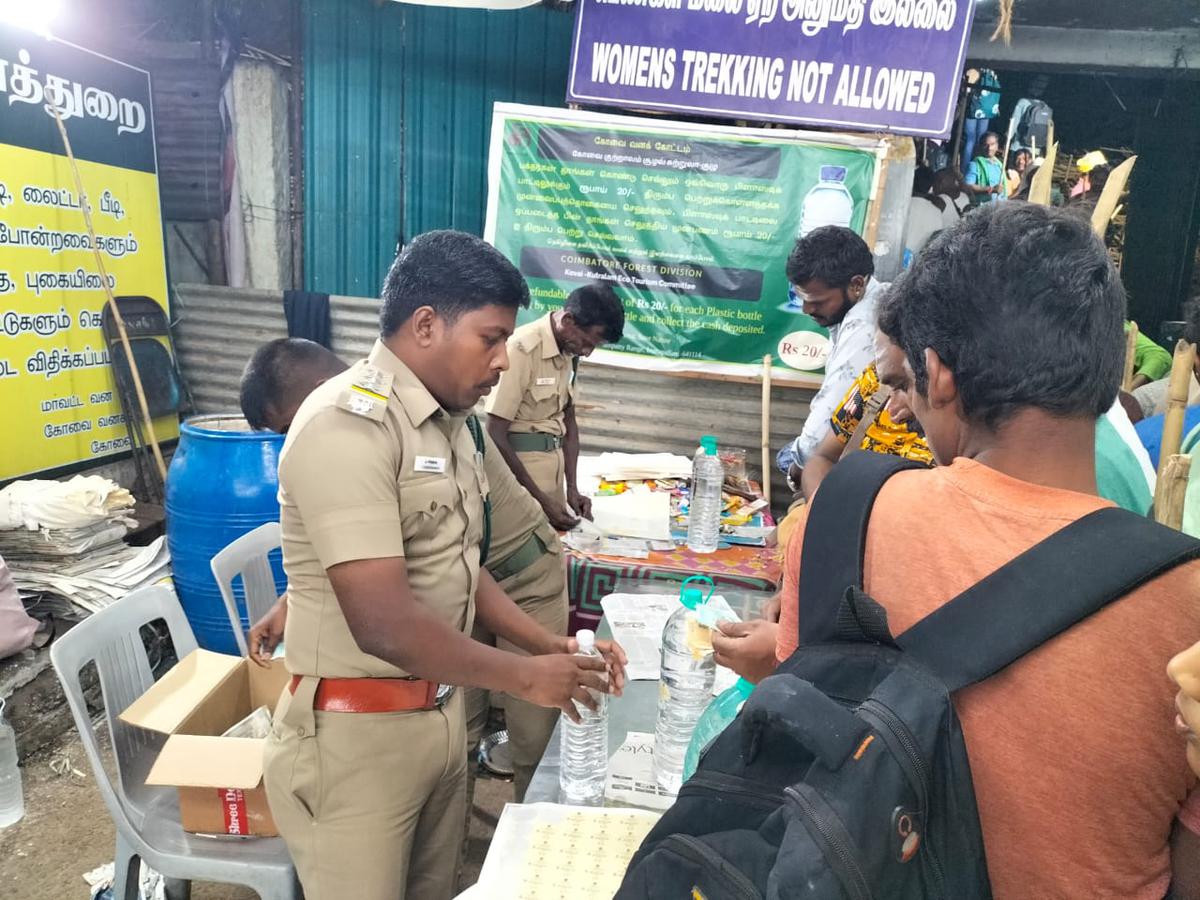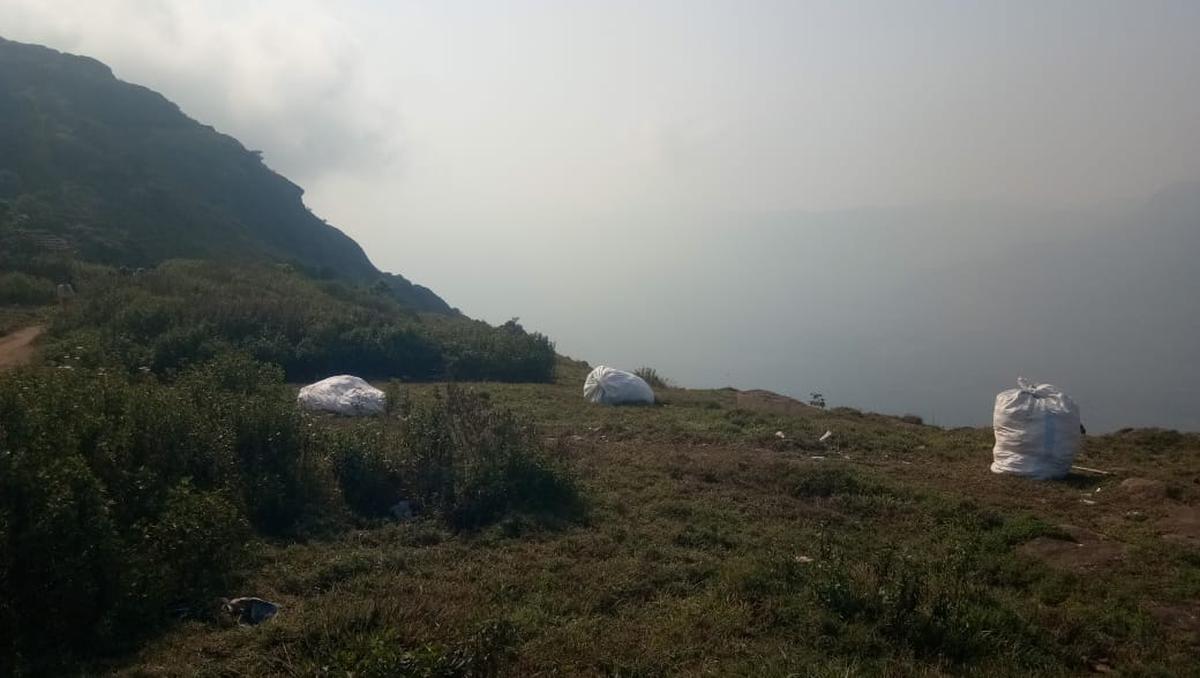
A view of Velliangiri Hills in Coimbatore
| Photo Credit: Special Arrangement
Recently, a video of a novel exercise to cut down plastics by Tamil Nadu Forest department went viral. It shows pilgrims visiting Velliangiri Hills in the Western Ghats, about 40 kilometres from Coimbatore, tag their plastic bottles with a green sticker. Then, they continue to pay a refundable deposit of ₹20 at Poondi, the foothills, before beginning their ascent over the seven hills that summits at a Shiva temple. While the team tagged close to two lakh bottles, over 1.66 lakh water bottles were brought back by the pilgrims, which is about 85%. A simple exercise, this prevented 14 tonnes of plastic waste from entering the reserve forest, a thriving bio-diversity hotspot located at an altitude of 1850 metres above mean sea level. Congratulatory messages have been pouring in for the team, including a tweet by Supriya Sahu, Additional Chief Secretary, Department of Environment, Climate Change and Forests. She wrote, “In a fantastic exercise Team #TNForest Coimbatore implemented an initiative to prevent littering of disposable water bottles by pilgrims visiting Velliangiri Hills….”

Plastic bottles being tagged at Poondi foothills
| Photo Credit:
Special Arrangement
“It’s a success model that can be replicated across pilgrim sites in India where there is a common entry point for everyone,” says N Jayaraj, the Divisional Forest Officer (DFO) of Coimbatore adding that the feedback from the public has been encouraging. “Over the years, as the inflow of tourists has shot up, it’s our responsibility to protect the ecosystem. Before opening the Velliangiri Hills for pilgrims, forest officials, NGOs and volunteers brainstormed for ideas on cutting down plastics and we went ahead with tagging plastic bottles. The exercise ensured that every individual did their bit towards conservation.”
Trekking up Velliangiri is not for the faint-hearted. Considered one of the most difficult climbs in the State, the six-kilometre arduous trek tests one’s physical and mental strength.

A clean and green hills
| Photo Credit:
Special Arrangement
“We recommend people with asthma, heart ailments, arthritis and other health issues like high blood pressure and diabetes to skip the trek. We allow pilgrims during three months between March and May. It remains closed during the rest of the year as the extreme weather is akin to what one experiences at the Himalayas. Besides freezing cold weather, the winds can be harsh because of the gusty air that blows from the Kerala side of the Western Ghats. The temple opens for pilgrims between Shivarathri in February to Chitra Pournami in May,” explains T Suseendranath, Forest Range Officer of Boluvampatti Range.
The terrain, which is an abode of elephants, spotted deer and gaur, and evergreen shola forests, often gets littered with biscuit wrappers, paper cups, food containers, and food wrappers during the season. “This year alone, over two lakh pilgrims from across Tamil Nadu trekked the hills. While it takes six hours to reach the top, it takes another five hours to get back down. At entry point, we ensure that pilgrims wrap food in paper, but plastic water bottles were a menace. But this drive was a success. The bottles were collected and given to recyclers,” he says.
Many regular visitors say the climb is a ‘once in a lifetime experience’ filled with breathtaking views, cool breeze and misty air. The trek begins at Poondi village and the first hill is believed to be the most difficult to climb. There are ups and downs as they climb the other hills and Aandi Sunai, a bone-chilling stream marks the end of the sixth hill. The seventh hill is the toughest. Adds Suseendranath, “The hills also serve as the catchment of River Noyyal. We have to ensure a pollution-free zone to ensure that Noyyal, the lifeline of Coimbatore, stays pristine along the course.”


